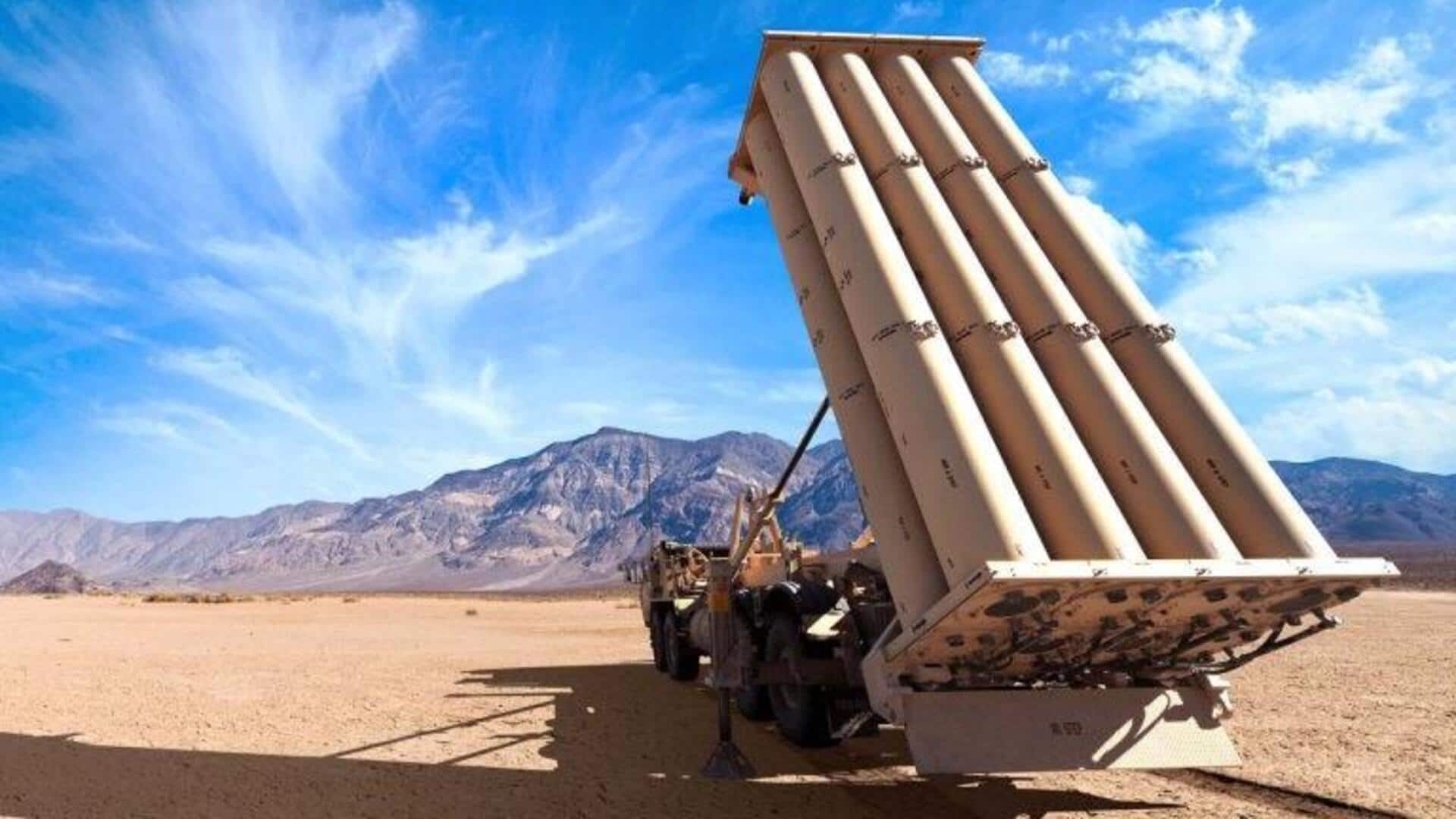
US sending THAAD to Israel: Key facts of anti-missile system
What's the story
The United States will send its Terminal High Altitude Area Defense (THAAD) anti-missile system and 100 troops to Israel, as the latter continues to battle Hamas, Hezbollah, and Iran.
The advanced missile defense system is manufactured by Lockheed Martin for the US Missile Defense Agency.
It can neutralize short, medium, and intermediate-range ballistic missiles inside and outside Earth's atmosphere.
Defense boost
THAAD to enhance Israel's defense capabilities
The deployment of THAAD is expected to give a major boost to Israel's defense against incoming missiles and rockets.
This comes as Israel plans retaliatory actions against Iran after its missile attacks earlier this month.
The THAAD system is known for its exceptional ability to intercept ballistic missiles, and will bolster Israel's already robust Iron Dome missile defense system.
Official statement
US defense secretary authorizes THAAD deployment
US Defense Secretary Lloyd Austin has authorized the deployment of the THAAD battery, after President Joe Biden's directive.
Pentagon spokesperson Maj Gen Pat Ryder confirmed this in a statement on Sunday.
President Biden, while in Florida on Sunday, expressed his support for the deployment saying it was "to defend Israel."
System specifics
It can intercept targets as far as 200km away
THAAD is one of the most advanced missile defense systems of the US.
The US currently operates seven such batteries with an eighth one under construction.
Each THAAD battery consists of six truck-mounted launchers, 48 missile interceptors, and radio and radar systems.
It takes a team of 95 soldiers to operate a single THAAD battery.
The system can intercept targets as far as 200km away. Notably, it doesn't carry explosive warheads but destroys targets using kinetic energy.
Strategic implications
Impact of THAAD deployment on Middle East conflict
The deployment of THAAD will strengthen Israel's defense in its multifront war in the Middle East, with Hamas and Hezbollah continuing cross-border missile attacks.
This comes after Israel's ground invasion of Lebanon in retaliation to Hezbollah's rocket attacks and its planned counterstrike against Iran.
The US has urged Israel to refrain from targeting Iran's nuclear and energy facilities over potential global economic repercussions.